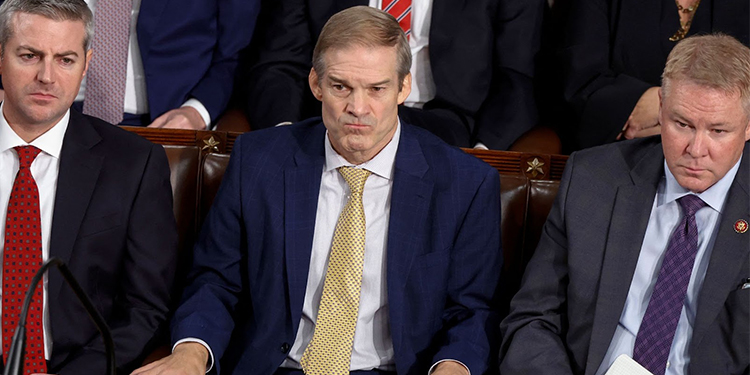The United States House of Representatives remains leaderless as Republican Jim Jordan, an ally of Donald Trump, failed in his second attempt to be elected as the head of the institution, which has been paralyzed for 15 days.
Despite President Joe Biden’s unwavering support during his trip to Israel, promising aid to fulfill historical commitments, the House of Representatives remains unable to vote on these promises.
With the Senate controlled by Biden’s Democrats and the House of Representatives under Republican control, the lower chamber has been leaderless since the removal of Kevin McCarthy on October 3, stripping it of crucial powers like passing laws.
The Republicans, who hold the majority of seats and are responsible for electing the House’s president, have been unable to reach a consensus, highlighting their divisions just a year before the presidential elections.
Congressman Jim Jordan, a staunch conservative and close ally of former President Trump, is the sole Republican candidate vying for the position. However, his extreme positions have led about twenty moderate Republicans to reject him, leaving him unable to secure the votes necessary for his election.
Jordan’s ambiguous stance on the 2020 presidential election, which Trump baselessly claims was “stolen,” has further complicated his candidacy.
The election process could last for days, reminiscent of the situation in January when ousted President Kevin McCarthy had to undergo 15 rounds of voting and make significant concessions to secure his position.
Amidst this crisis, the possibility of temporarily enhancing the powers of interim president Patrick McHenry is being considered. McHenry’s sole responsibility is to organize the election for McCarthy’s successor. Unless an unexpected alliance forms between moderate Republicans and the Democratic Party, which has mostly been a bystander in these negotiations, a resolution to the deadlock remains uncertain. Democratic leader Hakeem Jeffries has called on Republicans to end their “civil war” and urged them to form a coalition that transcends party lines.










